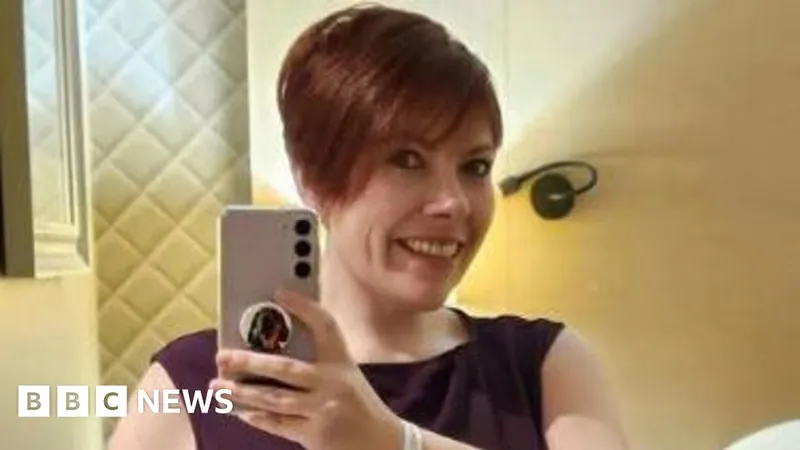
Meet the Inspiring Woman Turning Childhood Cancer Battles into Hope
2025-09-19
Author: Rajesh
A Brave Survivor's Journey of Hope
A woman from Bury, Greater Manchester, is on a mission to transform her childhood cancer experience into a beacon of hope for others. Kat Watson-Wood, now 37, was diagnosed with a brain tumor the size of a tangerine at just four years old. Although she successfully battled the disease, the effects of intensive treatment linger on, prompting her to dedicate her life to helping fellow survivors.
The Shadow of Childhood Cancer
More than three decades later, Kat is still grappling with the repercussions of her treatment, which included major surgery and extensive radiotherapy. These have left her with mobility difficulties requiring a wheelchair, cognitive challenges, and fatigue that forced her to leave her nursing career.
Reflecting on her ordeal, Kat recalls, "Just before my fourth birthday, I started walking with an unusual gait, staggering and bumping into things." Her journey was not just marred by illness; she also spent years on hormone medications to combat premature puberty, a common side effect of her treatment.
Empowerment Through Research
Determined to give back and foster advancements in childhood cancer care, Kat has joined the BRAINatomy project, a collaborative research initiative aiming to better understand and reduce the long-term side effects of childhood brain tumor treatments. Funded by prominent organizations including Cancer Research UK, this transatlantic study connects researchers from the UK and the USA, focusing on the long-term effects of radiotherapy.
Kat expressed, "I'm trying to make something good out of a bad thing. I want to prove that you can live a fulfilling life, even while dealing with side effects." The project aims to pinpoint vulnerable areas of the brain to minimize exposure during treatment, ultimately leading to kinder therapies for young patients.
A Community of Hope
Dr. Angela Davey from the University of Manchester highlighted the importance of this research: "We've identified key brain regions where radiation exposure correlates with learning and hormonal issues. It's essential for guiding future treatments, especially since traditional clinical trials for children are not feasible."
Prof. Marianne Aznar, who leads the BRAINatomy initiative, echoed this sentiment, emphasizing their goal of enhancing the quality of life for cancer survivors. Jemma Humphreys from Cancer Research UK added that children experience tumors and their treatments differently than adults, necessitating a specialized approach.
A Legacy of Change
With hopes set on shifting treatment paradigms, Kat is optimistic about the progress made over the past 30 years and wishes for even greater advancements. Expressing her commitment, she stated, "I hope this research will help in reducing, if not entirely eliminating, the long-lasting side effects for future generations." This remarkable woman is not just a survivor but a powerful advocate for change, proving that even the toughest battles can lead to a brighter future for others.

 Brasil (PT)
Brasil (PT)
 Canada (EN)
Canada (EN)
 Chile (ES)
Chile (ES)
 Česko (CS)
Česko (CS)
 대한민국 (KO)
대한민국 (KO)
 España (ES)
España (ES)
 France (FR)
France (FR)
 Hong Kong (EN)
Hong Kong (EN)
 Italia (IT)
Italia (IT)
 日本 (JA)
日本 (JA)
 Magyarország (HU)
Magyarország (HU)
 Norge (NO)
Norge (NO)
 Polska (PL)
Polska (PL)
 Schweiz (DE)
Schweiz (DE)
 Singapore (EN)
Singapore (EN)
 Sverige (SV)
Sverige (SV)
 Suomi (FI)
Suomi (FI)
 Türkiye (TR)
Türkiye (TR)
 الإمارات العربية المتحدة (AR)
الإمارات العربية المتحدة (AR)